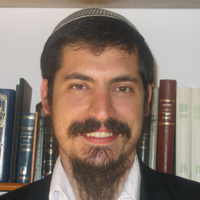Beit Midrash
- Torah Portion and Tanach
- Vayikra
- Kdoshim
- Shabbat and Holidays
- The Tenth of Tevet
- Yom Hakaddish Haklali
Several years ago, I was privileged to attend, along with 100 other Rabbis from around the world, the re-opening of Istanbul’s Neve Shalom synagogue. It had been attacked by cowardly Palestinian terrorists on Sep. 6, 1986, resulting in the murder of 22 congregants.
At the dedication, a shul officer drew our attention to a large Chumash that was enclosed in a glass case on the bima. He explained that although the attack took place on Shabbat parshat Shoftim, when the killing was over, they found the chumash open to parshat Kedoshim, blood splattered over the pages. As a reminder of that horrible incident, the chumash remains open to this day to that very same spot.
All Jews who are prepared to maintain their faith in Hashem, even at the cost of their lives, are part of the definition of Kedoshim. And so it is not by coincidence that Yom HaShoah coincides with this sedra, as we honor the memory of the 6 – closer to 7 – million Kedoshim.
But Kedusha is not reserved for the dead, of course. Perhaps an even higher level of Kedusha comes when we sanctify life. And that is exactly what the 51 Mitzvot in our parsha are designed to do. They offer a panorama of various ways in which we elevate human activity to a level of holiness, impacting upon others around us, &, at the very same time, upon ourselves.
We learn to honor our parents, & not engage in idolatry. To refrain from stealing, & to give to the poor by sharing our fields with them. We honor Torah scholars, but show no undue favoritism at a trial, even to the most eminent of leaders. We are instructed to rebuke a fellow Jew who is not conducting himself properly – in order to spare him the punishment that comes with sinning – yet at the same time we cannot embarrass him in the process.
The cornerstone of acting with Kedusha is embodied in the famous dictum, V’Ahavta L’Rayacha Kamocha – you should love your neighbor as you love yourself. This Mitzva actually encompasses all the others: Just as you would not want to be robbed, just as you would want others to help you if you were needy, just as you would not want to be cursed, so must you do unto others.
Rabi Akiva said of this unique commandment: Zeh K’lal Gadol B’Torah ("this is a foundation of Torah"). Read instead, this is the key to creating a great Torah K’lal (community) that is characterized by its Kedusha.





















